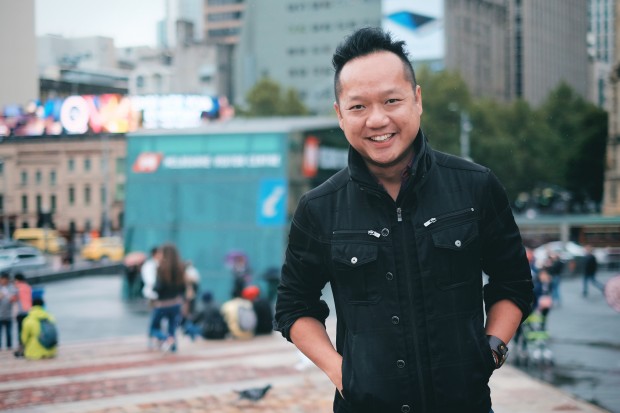Embracing diversity: Interview with New Australian of the Year, Gary Lee
NEW Australian of the Year, Gary Lee, has long supported international students in his line of work and continues to advocate for their welfare. Trinh Le caught up with Lee to talk about his recent award, his past voluntary experiences and his love of Australia’s diversity.
If you’ve ever attended the annual Lord Mayor’s Student Welcome, the EDGE Leaders’ Program, or just about any event related to international students in Melbourne, you’ll no doubt be familiar with Gary Lee.
A former international student from Malaysia, Lee has been working in the education sector for more than 15 years. Currently, he is the International Student & Youth Project Officer at the City of Melbourne.
Earlier this year, Lee was awarded New Australian of the Year by the Australia Day Council, a title that he feels serves as “a great testimony [to] what international students and migrants can achieve and contribute to [in] Australia when given the access, opportunity and support.”
Through his ongoing student advocacy programs, Lee has made continued efforts to raise awareness of contributions made by culturally and linguistically diverse (CALD) communities, and in the process has helped redefine “cultural diversity” beyond just food and festivals.
“It is no longer why we should embrace diversity, but why we cannot afford to ignore it,” Lee said.
Considering himself a “quiet achiever”, Lee spoke of how his education in Australia had changed his mindset and attitude towards work.
“Growing up in Malaysia, I was [led to believe that] I [didn’t] have to be in the limelight, and that my actions [would] be recognised if I simply work[ed] hard,” he said.
“However, this custom does not necessarily fit with Australian workplaces that value workers who ‘market themselves well’, so we need to make appropriate adjustments without compromising our principles.”
Lee’s approach was to combine the two mindsets in order to get the best of both worlds.
“For example, if [the interviewer] asks whether you have managed a social media campaign before but you have never worked in this space, consider approaching the question in a different manner. You could potentially say that you have done many community engagement activities and have a flair with marketing, and that these practices will help you in approaching a social media campaign. Emphasise that [you can] bring a new perspective to the project.”
“It is no longer why we should embrace diversity, but why we cannot afford to ignore it.” — Gary Lee
Lee also encouraged international students to open up to volunteer opportunities, in order to “learn new skills, build confidence, generate new networks and make a difference”.
However, according to Lee, students should be more “selective” about which programs to choose.
“My advice would be [to pick] opportunities that align with your passion or study. [Then] consider whether you are in a position to volunteer consistently, as opposed to a one-off experience – i.e. helping distribute water bottles at a marathon for a day or being an office bearer of an association for 12 months. The more time you invest, the more you will reap the rewards of volunteering.”
In reference to his own volunteer experiences, Lee spoke of how he always made sure he stood out enough that organisers couldn’t forget him.
“A good volunteer doesn’t just sit back and complain about a problem; they step up and come up with solutions,” Lee said.
Having seen international students struggle to overcome language barriers and other issues surrounding engagement in his line of work, Lee sought to bring students together through the power of dance when he started PoisE’n Bollypop in 2010.
The initiative stemmed from his own love affair of all things Bollywood and was supported by a few international students.
Believing that students were more likely to overcome issues of engagement through their interests, the group provided free dance workshops and potential gigs to students, then connected them to “a wider range of volunteering initiatives that [would] help bridge the local and international divide”.
“If we tap into students’ interests, they are more likely to engage with others,” Lee said.
As for what he’s doing to help students engage at the moment, currently Lee is collaborating with Joining the Dots to run the Welcome Dinner Project; connecting newly arrived students with local Australians over dinner in the comfort of someone’s home.
In addition to the many successful programs that Lee has supported in his role, such as the Lord Mayor’s Student Welcome Dinner, The Couch, and Melbourne Spring Fashion Week (each of which present their own opportunities for local and international students to join forces in establishing Victoria as the leading study destination in Australia), Lee hopes to continue his role as an advocate and supporter of international student welfare in Melbourne.
“Australia is a land of opportunities and it’s been my playground for so many years – I adore everything about Melbourne. This city has been kind to me as it has given me the freedom to follow my heart and do things that I am most passionate about,” said the New Australian of the Year.



